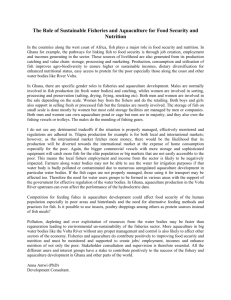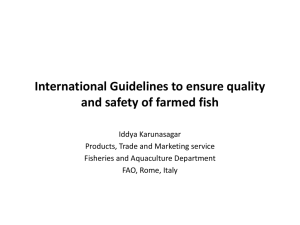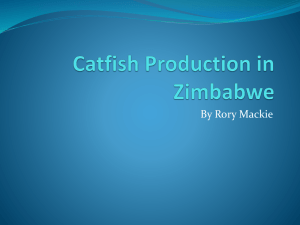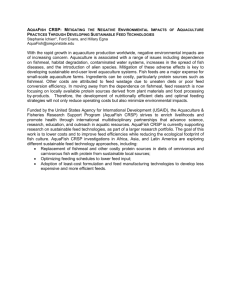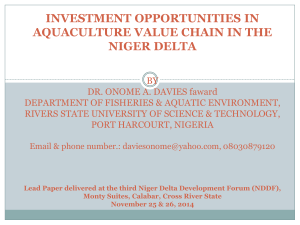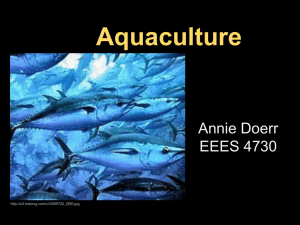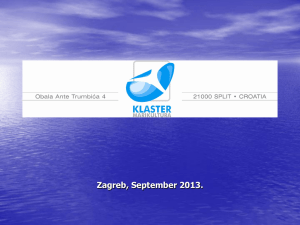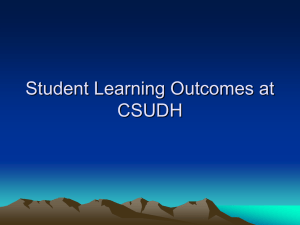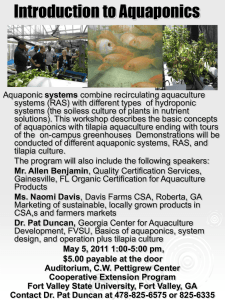Document
advertisement
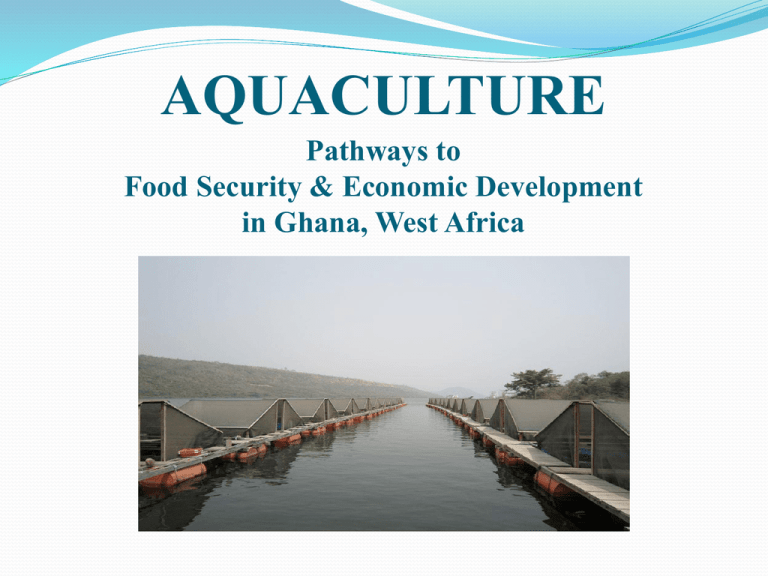
AQUACULTURE Pathways to Food Security & Economic Development in Ghana, West Africa Overview What Is Aquaculture? Aquaculture In Ghana Statistics Food Security & Economic Development Entrepreneurships, Trade & Investments Pros & Cons Next Steps What Is Aquaculture? Different from Agriculture and Fishing Two Forms: Off-Shore “Water” Based On-Shore “Land” Based Blueprint Materials Area & Water Fish & Feed Components Tanks Pumps Filtration Aeration Education & Maintenance Education Training Biologists and Engineers Managers & Accountants Maintenance Maintain Balanced Eco-System Repair Components Feed, Grow & Catch Fish Ghana Land 238,535km2 (92,098 mi2) Coastline 553.3 km (343.8 mi) Inland Water Coastline 24,000 km2 (14,913 mi2) Population 24 Million (45% children) Aquaculture In Ghana Ideal Country for Aquaculture Suitable Natural Environment Stable Government Government Support: Tax Breaks & Incentives Growing Economy Workforce High Fish Demand Fishing Industry Three Sectors Marine Inland Aquaculture 78% 19% 3% Market Trends Marine & Inland Decline Aquaculture Rise Renewable & Sustainable Main Product: Tilapia & Catfish 80% Fish Protein Statistics Requirement Production (Minus Export) Production Export Import 992,000.0 MT 397,445.2 MT (40.00%) 441,590.0 MT 44,144.8 MT 191,428.9 MT (20.00%) Consumption 558,874.1 MT (59.36%) Deficit 403,125.9 MT (40.63%) Trade Deals: Who Benefits? Importers EU (UK, Poland, Belgium), Netherlands Mauritania Exporters European Union Trade Partners EU, China, Japan Food Security & Economic Development Food Security = National Security Sustainable Sovereignty Education Environment Economic Development Power, Stability, Independence & Justice Entrepreneurships, Trade & Investments Ghanaian Citizens Ghana Economy Trade: Exports & Imports Infrastructure International Standing Investors Interested in Africa Pros & Cons CONS New Industry (Viability & Training) Start Up Costs (Capital) Maintenance Fees & Infrastructure Marketing Feed Supply Environmental Aspects Pros & Cons PROS Fast Growing Industry Relatively Easy Business Enter on the Ground Level Low Start Up Cost & High Return Sustainable Food Source Far East Farms Near Volta Lake in Sogakope, Ghana • Established • Reduce Deficit • Economy Focus Find Investors Increase Production Far East Farms Major Fish Products Tilapia & Catfish (Packaged & Unpackaged) Target 80% of the Local Market Competitive Prices Advertising Customer Service Local Activities: Restaurants, Shops, Cultural Events, Festivals for the Greater Accra Region Next Steps More Information Aqauculture Investment Opportunities MOFA FAO The Fish Site Far East Farms Fish Feed Industry Aquaponics Give a man a fish and he eats for a day. Teach a man to fish and he can feed himself for life. AQUACULTURE Pathways to Food Security & Economic Development in Ghana, West Africa Presented By Keva Williams kwilliams246@toromail.csudh.edu Osas Eguae oeguae1@toromail.csudh.edu In Association With Pan African Global Trade Conference http://www.panafricanglobaltradeconference.com/ Salim Faraji US Representative, Far East Farms sfaraji@csudh.edu Frederick M. Lomotey Executive Director, Far East Farms FMlomotey@yahoo.com Special Thanks To California State University, Dominguez Hills http://www.csudh.edu/ CSUDH Africana Studies Department http://cah.csudh.edu/africanastudies/ For More Information Visit Republic of Ghana, Ministry of Food & Agriculture (MOFA) http://www.mofa.gov.gh/ United Nations, Food & Agriculture Organization (FAO) http://www.fao.org/fishery/countrysector/FI-CP_GH/en The Fish Site (Industry Information) http://www.thefishsite.com/fishnews/vars/country/gh Kemet Nu (CSUDH Black Student Org ) http://persesh.com/kmt/
